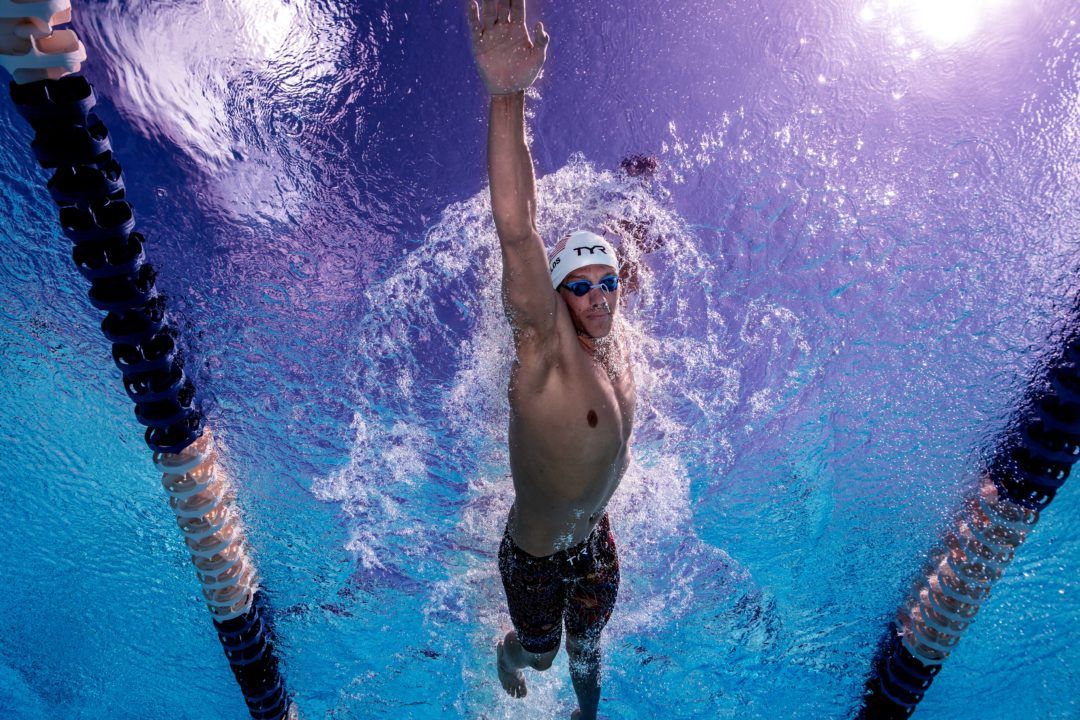SwimSwam welcomes reader submissions about all topics aquatic, and if it’s well-written and well-thought, we might just post it under our “Shouts from the Stands” series. We don’t necessarily endorse the content of the Shouts from the Stands posts, and the opinions remain those of their authors. If you have thoughts to share, please send [email protected].
This “Shouts from the Stands” submission comes from Toni Armstrong:
Wait, what? Stop setting long-term goals? But that is exactly how every coach starts their swimming season. That’s what all the Olympians and World Record holders do. That is what the coach who coached me did, and the coach who coached them, and the coach who coached them… Without a long-term goal, what motivation would any of us have for showing up each and every day? How will we know where we are going?
This is the typical response I get when I pitch the idea of cutting ties with setting long-term goals to any swim coach. Starting your season by setting a goal is so ingrained in the standard procedure of the swimming world that doing anything else seems insane. But is it really?
Here are eleven reasons you should stop setting long-term goals:
One:
Long-term goals are often time or award-specific, which are both uncontrollable outcomes.
Two:
Long-term goals define our experience in an instant instead of allowing your years of experience to define itself.
Three:
Long-term goals devalue the process and over-emphasize the result.
Four:
Long-term goals foster a fixed mindset where each race is a test of our value and self-worth. Instead we should foster a growth mindset where each race is a challenge and an opportunity to learn and grow.
Five:
Long-term goals leave us with tunnel vision focusing on the future and fails to provide daily tangible objectives to stay present for improvements today.
Six:
Sharing long-term goals aloud-like with a coach, parent, or teammate-tricks your mind into thinking you’ve achieved them leaving you unmotivated to follow through.
Seven:
Long-term goals do not foster skills to overcome adversity.
Eight:
Long-term goals are fixed, unwavering, and unforgiving. It leaves no room for self-compassion, adjustments in the face of adversity, or adaptation to developmental changes.
Nine:
Long-term goals create a double standard. You either miss your goal and are “not good enough” or you accomplished your goal and “could have accomplished more.”
Ten:
Setting long term goals creates a continual state of failure until the goals are achieved, and if achieved, successes are either short lived or anticlimactic. This makes for a highly un-motivating model that leaves swimmers with a negative and highly critical sense of self.
Eleven:
A long-term goal is simply a wish, but an intention with daily goals is a plan.
It’s not as crazy of a proposition as it originally sounded, is it? As you approach your next season, consider getting rid of your goal sheets and instead focus on actionable tasks that can be executed on a daily basis and will correlate to success. Teach your athletes to value growth, hard work, and find value in daily achievements; their mental health and success outside the sport depends on it.
Still not convinced? Here are 4 athletes who wrote about their negative experiences with long-term goals, valuing product over process, and the double standard of long-term goals:
Austin Surhoff
https://staging.swimswam.com/fitter-an
Katie Hoff
http://www.baltimoresun.com/sp
About the Author: 
Toni Armstrong is a Master of Experiential Education. She is the founder of Baltimore Leadership Guides (www.baltimoreleadership.com) a leadership development company that uses brain-based learning practices and low ropes style games to teach organizational psychology in a community and team building atmosphere. Her leadership philosophy is “leadership for civility-community happiness and success.” She was a club coach at NBAC for over 7 years, an instructor at Outward Bound California, and an instructor at The Stanford Leadership Institute before starting her own consulting company. She has consulted with teams such as Stanford Men’s Swimming, Johns Hopkins Swimming and Diving, NYU Swimming and Diving, and Goucher College’s Female Athletes. She is the leadership expert for LEAD Sports Summit (leadership empowerment event for teenage girl swimmers age 13-18), and her company will be running this year’s Coaches Academy at The Annual CSCAA Conference in Chicago, Illinois.

EXCELLENT ARTICLE!! I agree with you on setting long-term goals, however, I am a big believe in the use of process goals for each set and training session.
I agree with this 100%. The concept of goal-setting is essentially a dogma at this point that very few think to question, simply because it’s what we’ve always been told growing up and as adults. While goal-setting can provide a few benefits, scientific research has overwhelming shown that it also produces a number of debilitating consequences that inevitably affect people who are very goal-driven. Thanks for sharing this!
I decided to start my season with a blank slate this year, because I had no idea what I could accomplish my first year of college swimming with all of the transition and changes. In the past I would write out my goals on paper and think about them every day, however not doing that this year allowed me to go into each practice with no limits. It ended up working out for me because I accomplished way more than I ever thought possible and dropped time for the first time in years.